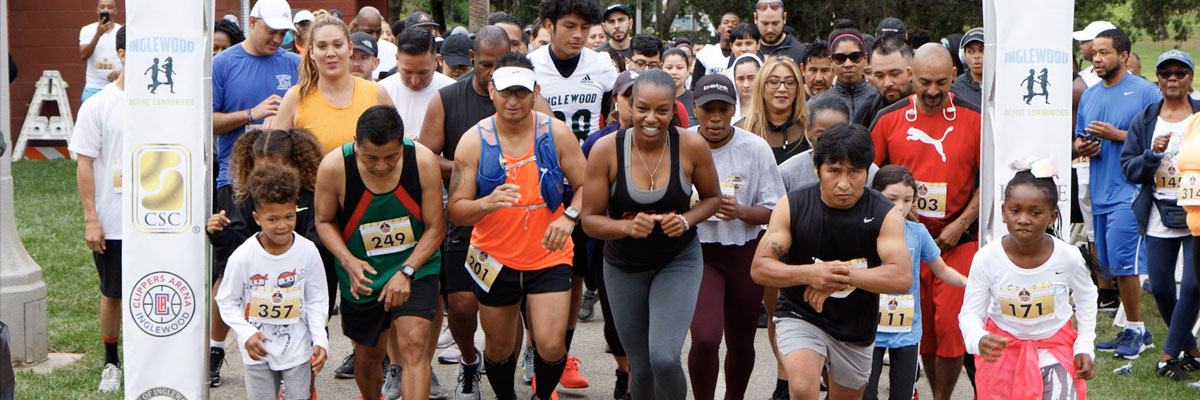
case study
Collective Impact Toolkit
We produced a toolkit to support sustained, community-level impacts in youth physical activity.
Client: American Heart Association (AHA)
The Issue
Despite the benefits of being active, only about one in five adults and adolescents gets enough exercise to maintain good health.
Social and environmental determinants of health, such as the availability of parks and open spaces, safe neighborhoods, and poverty, have a major impact on physical activity.
The Outcomes
AHA contracted Sentient Research to conduct a survey with residents of Inglewood, CA to look at cardiovascular health, physical activity, and social determinants of health.
We produced a report outlining the findings, which provided a better understanding of potential barriers to and facilitators of physical activity among residents.
We created a toolkit to support community-wide youth physical activity using collective impact approaches.
It’s clear that being more physically active helps people live longer, healthier lives. Being inactive and sitting too much are associated with higher risk of heart disease and type 2 diabetes, among a range of other health conditions. Despite this, too few adults and children get the amount of exercise needed to achieve optimal health.
Collective impact is a proven strategy that organizations can use to address complex social problems, including inequalities in social determinants of health. Collective impact brings organizations together, in a structured way, to achieve lasting social change.
Health Survey of Inglewood, CA Residents
In 2018, the AHA contracted with Sentient Research to conduct a poll of residents in Inglewood, CA to assess their awareness and concerns about cardiovascular disease and related health issues, their level of physical activity, and potential barriers to and facilitators of physical activity. Located in Los Angeles County, the city of Inglewood has structural and environmental barriers that may prevent residents from being active, such as neighborhood crime, poorly maintained sidewalks, and lack of parks and other public recreation facilities. For instance, Inglewood has less than one acre of recreation space per 1,000 people, compared to more than eight acres per 1,000 people in Los Angeles County overall.
Sentient Research conducted a 24-question online and telephone poll of 302 residents selected at random from five Inglewood, CA zip codes, in order to better understand awareness of and concern for cardiovascular disease and related health issues, levels of physical activity among Inglewood residents, and barriers to and facilitators of physical activity.
Our survey revealed significant concerns about a variety of health issues and low levels of physical activity. Overall, residents felt that unhealthy eating, diabetes, and obesity were top local health problems, and just under half (40%) reported that they rarely or never engage in physical activity. Residents reported that lack of safety due to crime or violence, and poor maintenance of public spaces/facilities are big problems in relation to exercising in public spaces or taking alternative modes of transportation such as walking, biking, or skating. Despite these issues, 91% of residents in the sample reported that they would have interest in using public spaces if their safety and availability were improved, and that this would help youth and their families to become more physically active.
Collective Impact Toolkit
The AHA used the community poll findings to launch the Inglewood Active Communities initiative in 2019. Funded by the NFL Foundation, Inglewood Active Communities is guided by collective impact and spearheaded by a coalition of more than 20 diverse organizations in Inglewood that are committed to increasing physical activity opportunities for youth ages eight to thirteen by 21% by 2021. This initiative is part of an integrated strategy to transform Inglewood into a heart-healthier city where everyone has the opportunity to live well, both today and in the future.
In 2020, the AHA contracted with Sentient Research to create a toolkit detailing how to apply collective impact in their community. While the toolkit is geared toward enhancing youth physical activity, the information and principles covered can be applied to a range of health and social issues.
